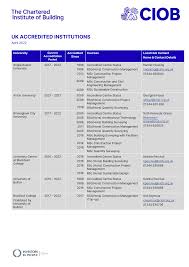
Global supply chain management focuses on the distribution and collection of goods and services within a company's global network. This practice aims to maximize profit while minimising waste. This process can be improved by using a variety of methods, including software tools to monitor the process. This article discusses some of the key benefits as well as requirements of a global Supply Chain Management degree program. The article also discusses the education requirements required for students wishing to pursue this career.
Benefits of a global supply chain management degree
If you are considering a career with global supply chain managers, a degree is in global logistics management. This degree program will prepare your for a career as a global leader. Graduates will possess advanced knowledge in supply chains management and advanced analytical tools. They will also have a deep understanding of how to optimize the commercial network. If you are already working, a degree in global supply chain management can help you advance your career.

The curriculum will include information about operations such as production planning, inventory management and warehousing. In addition, students will learn how to build and maintain strong relationships with suppliers across the globe. Students will also complete applied coursework and practical research, allowing them to gain real-world experience while learning the ropes of the industry. After graduation, you will also be eligible to work in your chosen industry.
The program graduates have the opportunity to find employment opportunities
The field of global supply chain management includes a number of job opportunities in a variety of industries. Many companies need to manage their expenses, including labor hours as well as materials. This profession could be a great way to help businesses succeed. It doesn't matter what job you choose, you could be responsible for managing the entire supply network from one place to another. While the job opportunities for global supply chain management graduates vary, they are among the most sought-after.
This field requires a deep understanding of the supply-chain. Candidates should have a deep understanding of supply chain technicalities and the ability to communicate with non-technical peers. A background in the Internet age is a great advantage. Graduates will be able understand the impact of the internet on retail and can contribute to the development of e-retail.
Education requirements
A bachelor's degree in business administration is not necessary to become a global supply chain manager. However, a master's program in global supply chains management will equip you with the knowledge and skills necessary to manage a global supplier chain. This degree focuses on innovative technologies and advanced analytical instruments, which will help you improve commercial networks' effectiveness. You can do this degree online. You'll learn how to apply these strategies and create them for the benefit you organization.

Students interested are pursuing a specialization within global supply chain can also study courses related to the subject. Project management students will learn to identify resources, create budgets and incorporate stakeholder input. They also learn to ensure projects stay on track. This program helps students to learn how to interact with global partners as well as the economics of global markets. Students may also take communication and leadership courses, depending on their program. You can also study business communication courses that will improve your communication skills.
FAQ
How to effectively manage employees
The key to effective management of employees is ensuring their happiness and productivity.
It means setting clear expectations for them and keeping an eye on their performance.
Managers need clear goals to be able to accomplish this.
They need to communicate clearly and openly with staff members. They need to communicate clearly with their staff.
They must also keep track of the activities of their team. These include:
-
What was the result?
-
How much work did you put in?
-
Who did it?
-
What was the moment it was completed?
-
Why was it done?
This information is useful for monitoring performance and evaluating the results.
What are the steps in the decision-making process in management?
Managers have to make complex decisions. It includes many factors such as analysis, strategy planning, implementation and measurement. Evaluation, feedback and feedback are just some of the other factors.
It is important to remember that people are human beings, just like you. They make mistakes. You can always improve your performance, provided you are willing to make the effort.
This video will explain how decision-making works in Management. We'll discuss the different types and reasons they are important. Managers should also know how to navigate them. The following topics will be covered.
How can a manager motivate his/her staff?
Motivation refers to the desire to perform well.
Doing something that is enjoyable can help you get motivated.
Or you can get motivated by seeing yourself making a contribution to the success of the organization.
If you are a doctor and want to be one, it will likely be more rewarding to see patients than to read medical books every day.
Another source of motivation is within.
One example is a strong sense that you are responsible for helping others.
Maybe you like working hard.
Ask yourself why you aren't feeling motivated.
Then try to think about ways to change your situation to be more motivated.
Why is Six Sigma so popular?
Six Sigma is easy to implement and can produce significant results. Six Sigma provides a framework to measure improvements and allows companies to focus on the most important things.
What are the top management skills?
No matter if they are running a local business or an international one, management skills are vital. These include the ability and willingness to manage people, finances as well resources, time and space.
Managerial skills are required when setting goals and objectives and planning strategies, leading employees, motivating them, solving problems, creating policies, procedures, or managing change.
As you can see, there's no end to the list of managerial duties!
What are the five management steps?
These five stages are: planning, execution monitoring, review and evaluation.
Planning is about setting goals for your future. It includes defining what you want to achieve and how you plan to do it.
Execution is the actual execution of the plans. Everyone involved must follow them.
Monitoring is the process of evaluating your progress toward achieving your objectives. Monitoring should include regular reviews of performance against goals and budgets.
Each year, reviews are held at the end. They give you an opportunity to review the year and assess how it went. If not, it is possible to make improvements for next year.
Evaluation takes place after the annual review. It helps identify what worked well and what didn't. It also provides feedback on how well people performed.
What are some common mistakes managers make?
Managers can make their jobs more difficult than necessary.
They may not delegate enough responsibilities and not provide sufficient support.
A majority of managers lack the communication skills needed to motivate their team and lead them.
Some managers set unrealistic expectations for their staff.
Managers may prefer to solve every problem for themselves than to delegate responsibility.
Statistics
- The BLS says that financial services jobs like banking are expected to grow 4% by 2030, about as fast as the national average. (wgu.edu)
- This field is expected to grow about 7% by 2028, a bit faster than the national average for job growth. (wgu.edu)
- Your choice in Step 5 may very likely be the same or similar to the alternative you placed at the top of your list at the end of Step 4. (umassd.edu)
- 100% of the courses are offered online, and no campus visits are required — a big time-saver for you. (online.uc.edu)
- The average salary for financial advisors in 2021 is around $60,000 per year, with the top 10% of the profession making more than $111,000 per year. (wgu.edu)
External Links
How To
How can you implement a Quality Management Plan?
QMP (Quality Management Plan) is a system to improve products and services by implementing continuous improvement. It is about how to continually measure, analyze, control, improve, and maintain customer satisfaction.
QMP is a standard way to improve business performance. QMP's goal is to improve service delivery and production. QMPs should address all three dimensions: Products, Services, and processes. A "Process" QMP is one that only includes one aspect. The QMP that focuses on a Product/Service is called a "Product." QMP. QMP is also used to refer to QMPs that focus on customer relations.
Two main elements are required for the implementation of a QMP. They are Scope and Strategy. They can be described as follows:
Scope: This is the scope of the QMP and its duration. If your organization wishes to implement a QMP lasting six months, the scope will determine the activities during the first six month.
Strategy: This describes how you will achieve the goals in your scope.
A typical QMP has five phases: Planning (Design, Development), Implementation (Implementation), and Maintenance. The following describes each phase.
Planning: This stage determines the QMP goals and prioritizes them. To understand the expectations and requirements of all stakeholders, the project is consulted. After identifying the objectives, priorities, and stakeholder involvement, the next step is to develop the strategy for achieving these objectives.
Design: During this stage, the design team develops the vision, mission, strategies, and tactics required for the successful implementation of the QMP. These strategies are put into action by developing detailed plans and procedures.
Development: Here, the development team works towards building the necessary capabilities and resources to support the implementation of the QMP successfully.
Implementation: This refers to the actual implementation or the use of the strategies planned.
Maintenance: Maintaining the QMP over time is an ongoing effort.
Several additional items should be added to the QMP.
Participation of Stakeholders: The QMP's success depends on the participation of stakeholders. They need to be actively involved in the planning, design, development, implementation, and maintenance stages of the QMP.
Initiation of a Project: A clear understanding and application of the problem statement is crucial for initiating a project. Also, the initiator should understand why they are doing it and what they expect.
Time frame: The QMP's timeframe is critical. You can use a simplified version if you are only going to be using the QMP for short periods. If you're looking to implement the QMP over a longer period of time, you may need more detailed versions.
Cost Estimation. Cost estimation is another crucial component of QMP. Planning is not possible without knowing the amount of money you will spend. Before you start the QMP, it is important to estimate your costs.
QMPs are not just a written document. They should be a living document. It changes with the company. It should be reviewed regularly to ensure that it meets current needs.